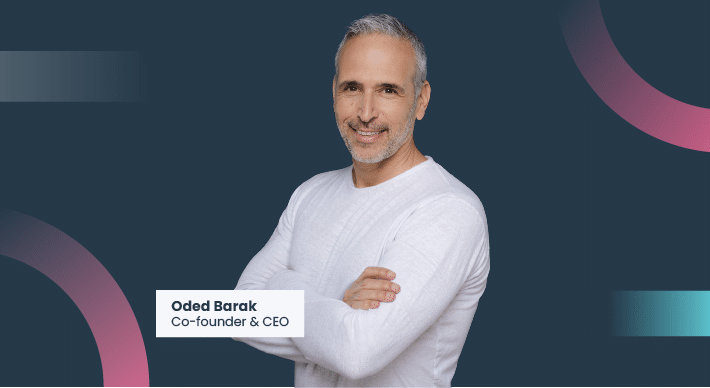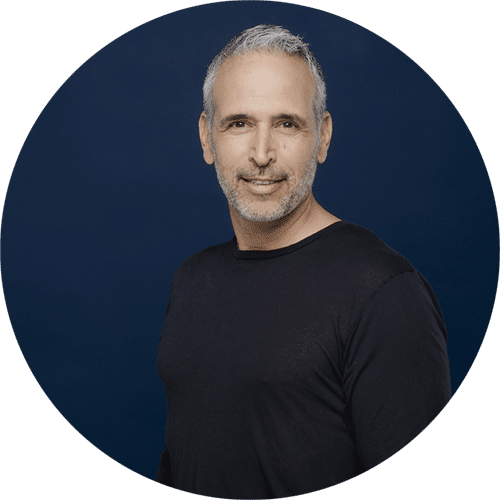Our CEO’s 4 Key Takeaways from Connected Claims USA 2022
Even when you’re there to share your expertise, industry events can be a valuable learning experience. Here’s what our CEO saw at Connected Claims USA 2022.
As the CEO of an insurtech company, the discussions we hold with our customers and prospects frequently revolve around the following topics:
- How will modernization improve efficiency and decision making?
- How can we improve the customer experience?
- How do we use data to gain visibility and more importantly, take actionable steps to achieve agility and resilience?
These are the same questions that fueled many of the sessions and discussions that I heard at last week’s Connected Claims USA 2022 event in Chicago. I was there to share my perspective on the insurance industry’s move from legacy systems to modernized solutions, but also to gain perspective and insights on where the insurance industry is heading.

Oded Barak, Five Sigma’s Co-founder and CEO on stage at Connect Claims USA 2022
Here are four key takeaways from the three-day event that I consider particularly important and useful:
1. Customer experience is top of mind throughout the insurance industry.
The insurance industry is shifting towards a “customer first” approach. Notably, the importance of customer experience is well understood by professionals from throughout insurance companies. That’s true of underwriters, claims adjusters, and everyone in between. And, perhaps most importantly, it’s true of the insurance executives who play a critical role in determining the directions of their companies going forward.
For decades, insurance customers viewed insurance as a commodity product they had to purchase based on what was available. But that is no longer the case. Now, the market has become saturated with more insurance products and different options, creating a more sophisticated buyer with a large range in needs and wants. In addition, consumer expectations have fueled the growth of insurtech distribution platforms. To meet these changing needs, insurers need to be nimbler, work faster, and make delivering a superior customer experience their top priority.
2. The insurance world is desperate for modernization, but there’s still some resistance to it.
Few would argue that modernization is a bad thing. People know automation increases efficiency and reduces error rates. And it creates tremendous business gain, both in the short term and in the long term.
But it appears that some players in the insurance industry are still somewhat resistant to change. At events like Connected Claims, I hear many of the same digital transformation topics being talked about in 2022 as I’ve been hearing for several years – and they’re still relevant today because modernization is happening slower than I would expect.
Why is that? I believe the heart of the issue is a fear of change. We still hear voices in the insurance industry that treat modernization, digital transformation, automation, and technology as risks rather than opportunities. It’s time for those voices to internalize the realization that rather than creating risk, automation actually reduces it, improves outcomes, and yields better results. Believe it or not, there is actually such a thing as a “Free lunch,” in this case, lowered risk and high reward.
In fact, the main risk that automation creates is a risk of being left behind as competitors modernize, increase their efficiency, and boost customer satisfaction.

Don’t Miss a Beat: Transform Legacy Systems to a Fully Integrated, Modernized Operation Connected Claims USA 2022
3. Insurers understand that data is hugely valuable, but how to use it isn’t always as clear.
Insurers rely heavily on data, especially in realms like underwriting and pricing. Their companies have plenty of it, and many of these professionals are used to dealing with it.
But one key insight I took from Connected Claims USA 2022 is that there’s still a lack of understanding of how insurance companies can get even more value out of their data using new technologies.
Technological advances like AI, data modeling, and machine learning create new opportunities for using data more effectively. Insurers can now use data to optimize their operations and overall business outcome, and not only for traditional usage purposes such as compliance. For example, claims organizations can leverage modern claims management solutions and claims data to improve their claims adjusters’ productivity, accuracy, and reliability.
4. To realize the potential of digital transformation, insurers need more clarity on why they’re transforming.
The technology that insurance companies need to achieve digital transformation is out there (and easily accessible), but using that technology effectively requires a clear understanding of what, exactly, is driving the transformation in the organization: what are the key pain points that you want to address? What are you hoping to achieve?
From my discussions with Chief Claims Officers and insurance leaders, insurers that are embracing innovation are seeing:
- Improved financial output
- Enhanced customer experiences
- Clear visibility of their entire operations
- The ability to allow their customer to innovate faster
These are all strong reasons to make the case for adopting digital transformation sooner rather than later.
Conclusion
Perhaps the most encouraging sign I saw in Chicago is that insurance professionals are engaging with important questions and having insightful conversations about the meaning and implications of digital transformation in our field.
Now is the time to be fearless, not timid, in the face of new opportunities. And although the fear of change is still holding back our industry, the combination of innovation and competition means that it’s just a matter of time until digital transformation is fully embraced.
And that’s good news for insurers and customers alike.




